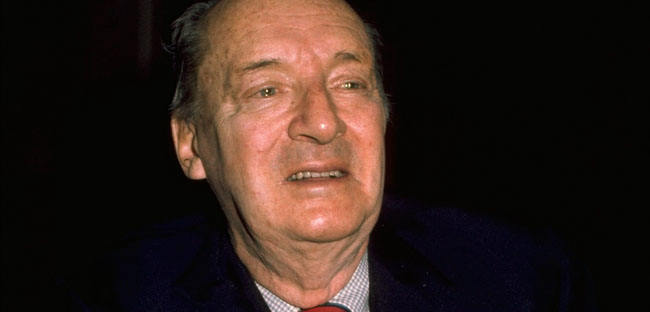The move to shut down Nobokov’s Lolita with violence
IN the New Yorker, Michael Idov writes about the problems of staging Lolita, a play based on Vladimir Nabokov’s book. It’s the 1955 story of a middle-aged professor who falls for a 12-year-old girl. The Sunday Express called Lolita “sheer unrestrained pornography”. It might be.
“Lolita, light of my life, fire of my loins. My sin, my soul. Lo-lee-ta.” So it begins. The line is memorable and notorious:
Leonid Mozgovoy, the owl-eyed seventy-one-year-old actor, has played Chekhov (goatee), Hitler (mustache), and Lenin (goatee, bald cap), all in films by the famed Russian director Alexander Sokurov. And sometimes, in his natural hair, he becomes Humbert Humbert in “Lolita,” a one-man show featuring Humbert reading his own story out loud, that has played in Saint Petersburg on and off over the last two decades. When it was first staged, the monologue had to pass muster with the khudsovet, a Soviet censorship organ. It did. “They said I perform it rather chastely,” Mozgovoy recalled in an interview.
On a snowy night in early 2013, “Lolita” went up once again, unchanged, but it had suddenly become the most scandalous show in town. The performance had been postponed since last October amid threats to Mozgovoy and others. In January, three men jumped the play’s twenty-four-year-old producer, Anton Suslov, giving him two black eyes and a concussion while calling him a “paedophile”; a murky video of the beating was posted online. The same libel was slashed in spray paint across the walls of the Nabokov museum in St. Petersburg and the writer’s ancestral estate in Rozhdestveno, about fifty miles from the city. Anonymous activists had petitioned to have the play banned, the museum closed, and Nabokov’s books purged from stores. The author, whose novels thrum with ironic recurrences, might have been perversely pleased with this: thirty-six years after his death and twenty-two years after the fall of the Soviet Union with all its khudsovets, Vladimir Nabokov is, once again, controversial.
Something called the St Petersburg Cossacks painted that graffiti. A banner within said the writer would suffer the “wrath of God”. The museum’s curator Tatiana Ponomaryova pointed out that the latest threats contained “several grammatical errors”.
Posted: 7th, March 2013 | In: Books 0 Comments | TrackBack | Permalink



